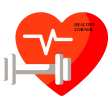I consume too much sugar. It’s a problem, I need to stop.
reduce sugar intake

Excess sugar consumption has been linked to various health issues, including obesity, type 2 diabetes, cardiovascular disease, and tooth decay. Reducing sugar intake is an important step towards improving overall health and well-being. Here are some strategies and tips to help you reduce your sugar intake and make healthier choices:
Understanding the Effects of Excess Sugar Consumption
Excessive sugar consumption has become a significant concern in modern diets, as it is associated with various detrimental effects on health. By understanding these effects, individuals can make informed choices and take steps to reduce their sugar intake. Here are some key points to consider:
- Weight Gain and Obesity:
Consuming excessive amounts of sugar, especially in the form of added sugars and sugary beverages, can contribute to weight gain and obesity. Sugar is calorie-dense and lacks essential nutrients, leading to an imbalance in energy intake and expenditure. Additionally, high sugar intake can disrupt the body's natural appetite regulation, leading to overeating and weight gain.
- Increased Risk of Type 2 Diabetes:
A diet high in sugar can contribute to insulin resistance, a condition where cells become less responsive to insulin's actions. This impaired insulin function is a major risk factor for the development of type 2 diabetes. Consistently high blood sugar levels from excessive sugar consumption can strain the body's insulin production and increase the likelihood of developing this chronic condition.
- Cardiovascular Health:
Excessive sugar intake has been associated with an increased risk of heart disease and other cardiovascular problems. High sugar consumption can lead to elevated triglyceride levels, increased blood pressure, inflammation, and unfavorable changes in cholesterol levels. These factors contribute to the development of cardiovascular conditions such as heart attacks, strokes, and atherosclerosis.
- Dental Health and Tooth Decay:
Sugar is a primary contributor to tooth decay. Sugar-eating bacteria in the mouth produce acids that erode tooth enamel and cause cavities. Frequent consumption of sugary foods and beverages, especially those with high acidity levels, can accelerate tooth decay and oral health issues.
- Increased Risk of Chronic Diseases:
Research suggests that excessive sugar consumption is associated with an increased risk of other chronic diseases, including certain types of cancer (such as pancreatic, colorectal, and breast cancer), liver disease, and non-alcoholic fatty liver disease (NAFLD).
- Nutrient Imbalances:
Foods high in added sugars often lack essential nutrients, leading to imbalances in the diet. When individuals consume sugary foods instead of nutrient-dense options, they may not meet their nutritional needs. This can contribute to deficiencies in vitamins, minerals, and fiber, affecting overall health and compromising the body's ability to function optimally.
- Energy Levels and Mental Health:
While sugar can provide a quick burst of energy, it is typically followed by a crash. Relying on sugary foods for energy can result in unstable blood sugar levels, leading to fatigue, mood swings, and difficulties with concentration and focus.
Understanding the effects of excess sugar consumption highlights the importance of reducing sugar intake and making healthier dietary choices. By being aware of the potential risks associated with high sugar consumption, individuals can take proactive steps to prioritize their health and well-being.
Reading Food Labels and Identifying Hidden Sugars
One of the key steps in reducing sugar intake is learning to read food labels effectively. Many processed foods and beverages contain hidden sugars, which can make it challenging to identify and monitor our sugar consumption. By developing the skill of reading food labels, individuals can make more informed choices and select foods with lower sugar content. Here are some important points to consider:
- Check the Ingredients List:
The ingredients list provides valuable information about the food's composition. Look for any terms that indicate the presence of sugar, such as sucrose, glucose, fructose, high-fructose corn syrup, molasses, maltose, or any ingredient ending in "-ose." The higher these ingredients appear on the list, the greater the quantity of sugar in the product.
- Look for Total Sugar Content:
Food labels typically list the total sugar content per serving. However, it's important to remember that this includes both naturally occurring sugars (such as those found in fruits or dairy) and added sugars. Focus on the "Total Sugars" line rather than the "% Daily Value," which does not differentiate between natural and added sugars.
- Check for Hidden Sources of Sugar:
Sugar can be disguised under various names on food labels, making it crucial to be vigilant. Common hidden sources of sugar include syrups (such as corn syrup or malt syrup), dextrose, fruit juice concentrates, honey, and agave nectar. Be aware that even seemingly healthy products like yogurt, granola bars, and cereals can contain significant amounts of added sugars.
- Pay Attention to Serving Sizes:
Serving sizes listed on food labels can be misleading, as they may differ from what we typically consume. Be mindful of the serving size when assessing the sugar content. If you consume larger portions, remember to adjust the sugar content accordingly.
- Compare Similar Products:
When choosing between similar products, compare their sugar content. Opt for options with lower sugar content per serving. For example, compare different brands of breakfast cereals or yogurts to select the one with the least amount of added sugars.
- Choose Whole Foods:
Whole, unprocessed foods generally have minimal or no added sugars. Fruits, vegetables, lean proteins, whole grains, and legumes are excellent choices that offer essential nutrients without excessive sugar content. Focus on incorporating more of these whole foods into your diet.
- Be Wary of "Low-Fat" or "Fat-Free" Products:
Low-fat or fat-free products often compensate for the reduction in fat by adding more sugar for flavor and texture. Read the labels carefully to ensure that the reduction in fat doesn't result in an increase in sugar content.
Developing the habit of reading food labels empowers individuals to make informed decisions about their sugar intake. By becoming familiar with common sources of hidden sugars and understanding how to interpret food labels accurately, individuals can take control of their dietary choices, reduce their sugar consumption, and make healthier overall decisions about the foods they consume.
About the Creator
Ravindu Laksara
Good health is not something we can buy. However, it can be an extremely valuable savings account.






Comments
There are no comments for this story
Be the first to respond and start the conversation.